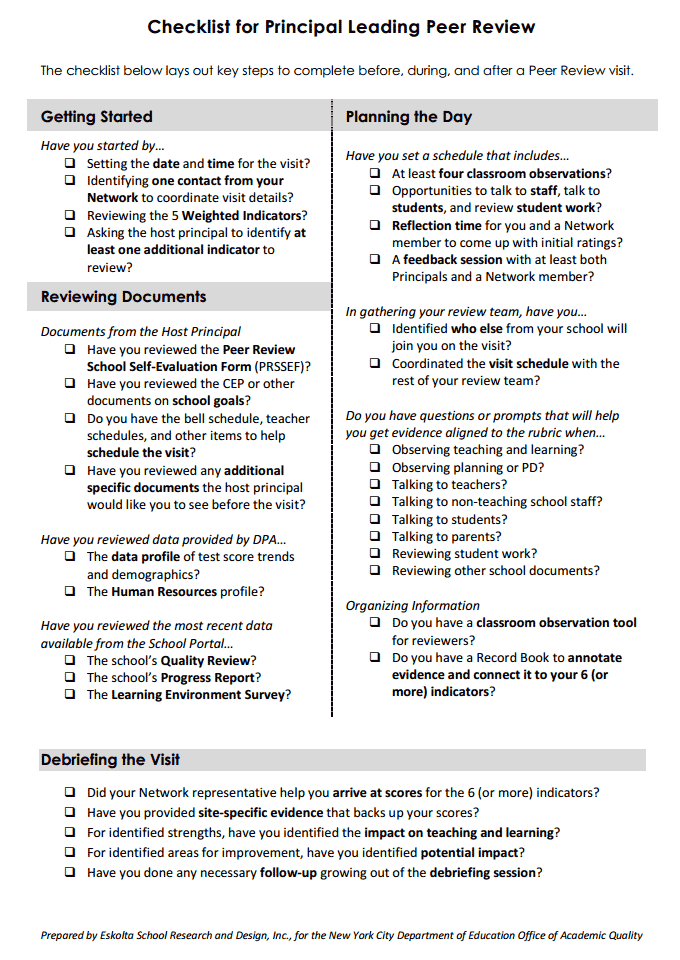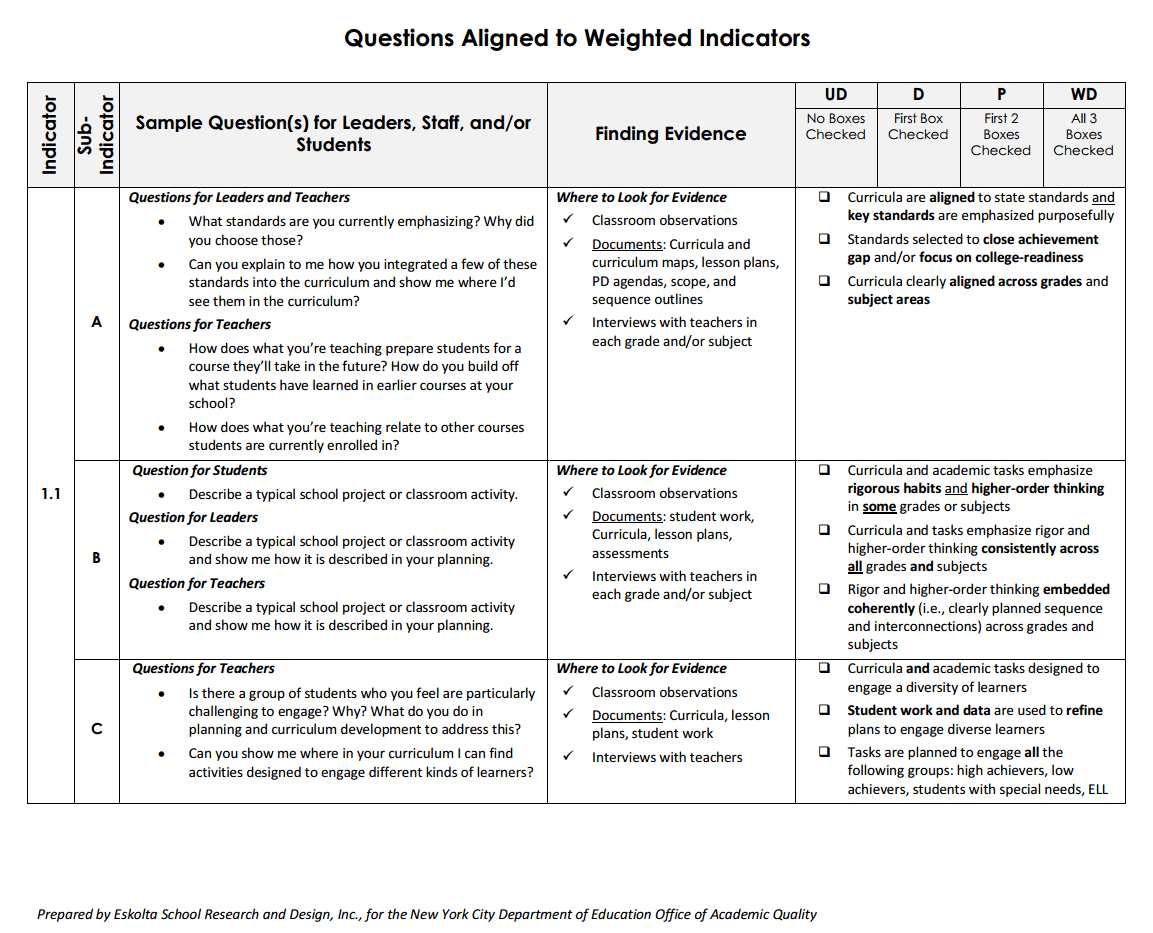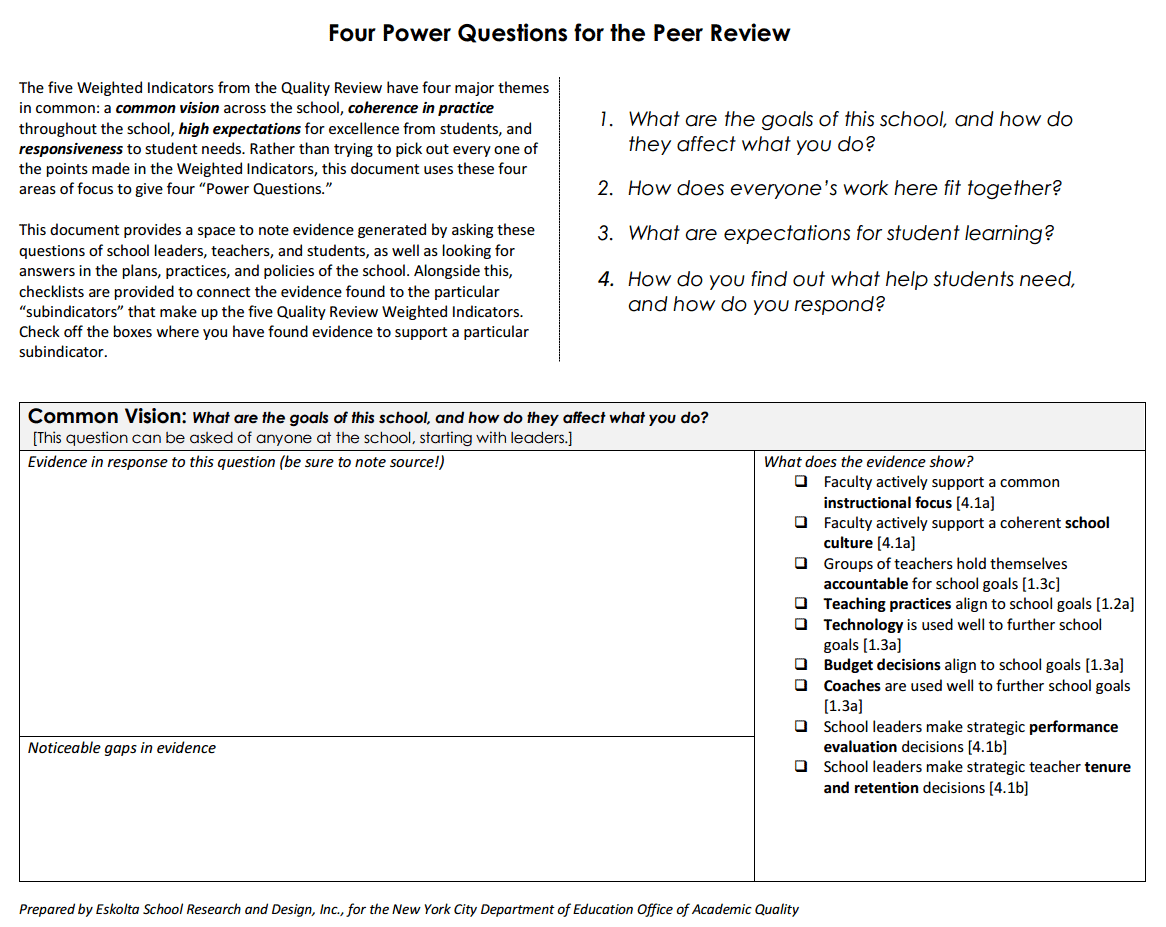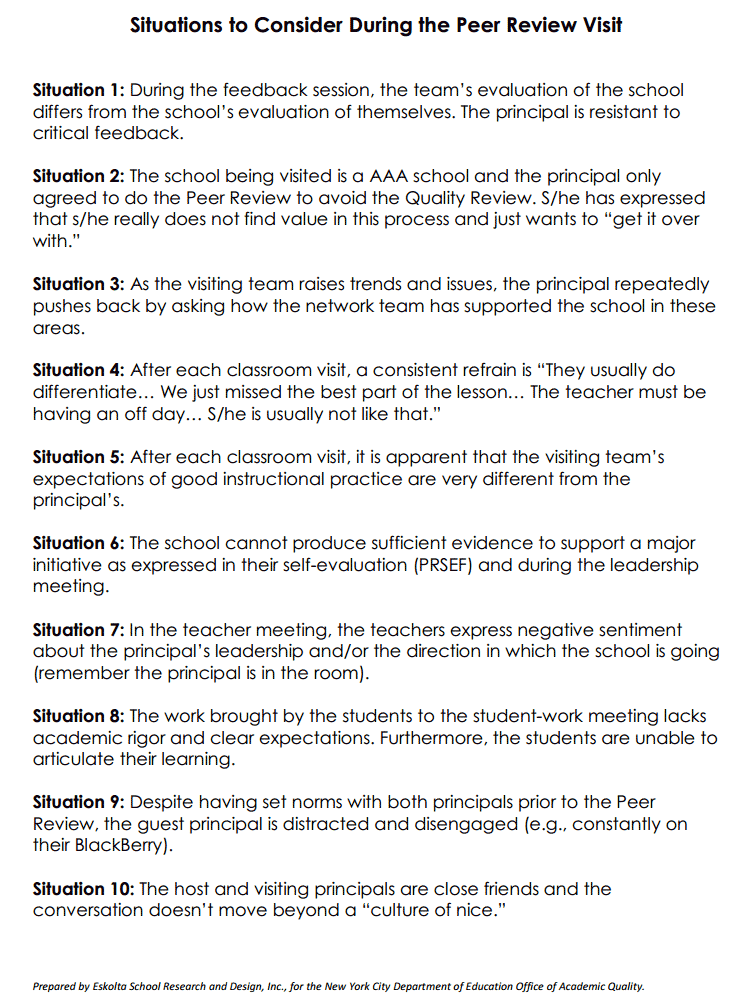What We Do: Design Projects >> Data-Guided Leadership
Behind the Scenes with School-to-School Peer Quality Reviews
Few can understand the challenges faced by principals of New York City public schools better than fellow principals. Such is the reasoning behind the New York City Department of Education’s (NYCDOE) new alternative to the formal NYCDOE-led Quality Review, in which the quality of each school in the system is evaluated by the school’s network according to a set of criteria. The Peer Quality Review facilitates the same evaluative review, but it also allows participating principals to learn from practices at other schools. When the NYCDOE wanted help launching this approach in the 2009–2010 school year, Sarah Goodman, NYCDOE Director of Special Projects for School Quality, reached out to Eskolta.
To simplify the Peer Quality Review process for principals, Eskolta produced a one-page Pre-Review Checklist and converted the NYCDOE’s text-heavy rubric into a user-friendly document titled Questions Aligned to Weighted Indicators. Eskolta Director Michael Rothman explains, “By simplifying the process through checklists, we’re trying to help principals think of the Peer Quality Review as an empowering exercise rather than something that just gives them more work.” In order to maximize the meaning of visits, Eskolta developed Four Power Questions to empower principals to ask open-ended questions that steer teachers and leaders away from scripted, rehearsed answers. Eskolta led facilitated sessions where Network Leaders and principals developed innovative ways get the most out of a tight schedule, resulting in ideas such as breaking the visit into 30-minute blocks and opening up the process to include multiple principals per visit.
A formative portion of the visit is the process of debriefing at the end of the day between the visiting and host principal. Eskolta recognized the critical value of this face-to-face interaction (because written reports can often be misinterpreted or ignored) and anticipated that it might be difficult for principals who want to maintain a friendly working relationship to move beyond a “culture of nice.” To help Network Leaders prepare principals for this tough discussion, Eskolta facilitated role-plays and debriefs among network staff and created a list of Sticky Situations to Consider During the Visit, including scenarios such as “the guest principal is distracted and disengaged (constantly on the cell phone).” Ms. Goodman reiterated the effectiveness of Eskolta’s work with networks in getting this new program afoot, affirming that “various principals said that the worksheets and discussions helped them think through the process and maximize their time.” Eskolta helped participating principals arrive prepared and navigate anticipated situations, which facilitated not only a successful review from the perspective of NYCDOE criteria but also an experience of mutual growth for principals.




